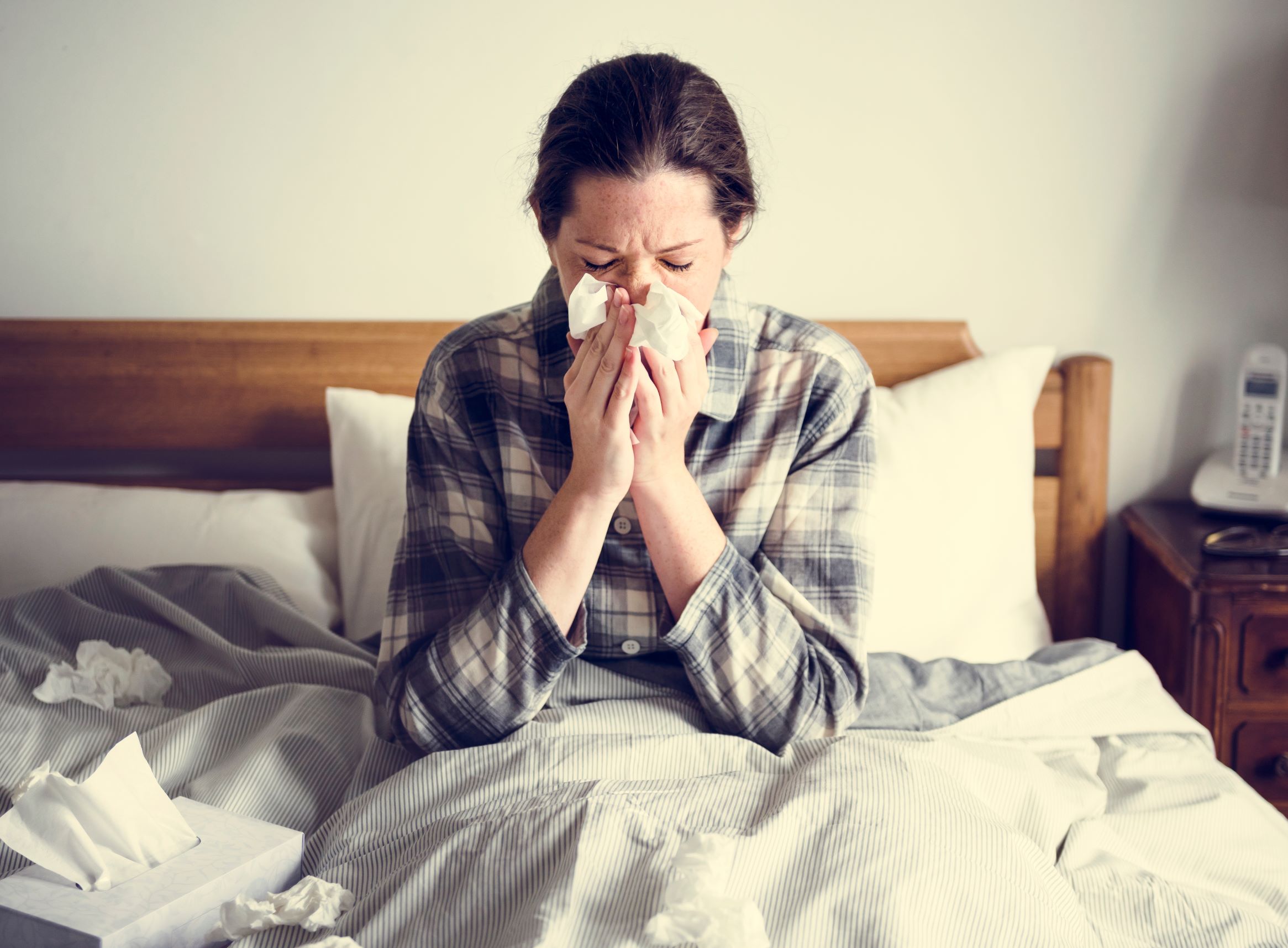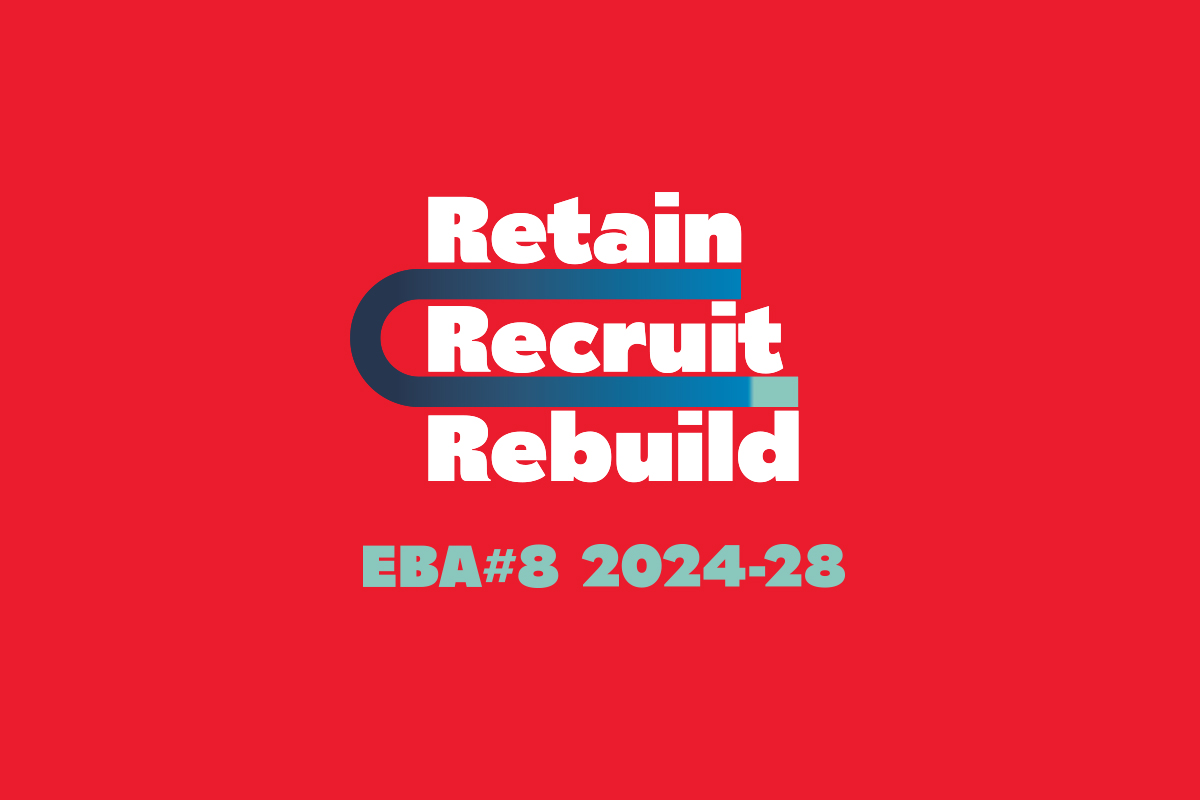
Got the sniffles? Bit ticklish at the back of the throat? Muscles feeling unusually sore? Do not neglect the possibility that you may be vulnerable to illness.
It’s mid-winter and we are inside the peak period for infectious respiratory illness, such as influenza.
The number of influenza cases reported in Victoria has soared this year, according to daily updated figures published by the Department of Health and Human Services. By 28 June, more than 22,200 suspected influenza cases had been reported since January – or almost more than eight times the number of cases a year ago – taking the 12-month running total to more than 31,000. More than 30 people have died from ‘flu this year in Victoria.
Many more people, however, never report ‘flu cases to their doctors and do not get tested or treated for the ‘flu. The actual number of cases in the community is likely to be much higher than the reported figures.
ANMF (Vic Branch) members need to be fully informed about what to do if they become ill and ensure they take preventative measures to minimise risks to themselves, colleagues and patients.
Importantly, members need to know they have enforceable rights in the workplace. Employers in all health services have clear duties to keep workers safe.
Too often, nurses, midwives and personal carers are unaware that they can act against errant employers. You are entitled to lodge a WorkCover claim if you contract a disease, including influenza, due to your work.
Employers have vital obligations under the Occupational Health and Safety Act 2004 and under workplace agreements to ensure staff and patients are safe, and this includes devising and implementing comprehensive risk management plans.
While risks cannot be eliminated entirely, minimising the prospect of nurses, midwives and carers becoming ill in the workplace is a necessary and crucial element of infection control requirements.
All health services employers in the public sector are required to ensure immunisation is made available to staff. Most aged care providers also provide immunisation services for staff.
Do not neglect your potential exposure to other notifiable diseases, including gastro-enteritis and scabies.
Nurses, midwives and personal carers should have access to personal protective equipment – face masks, gloves, eyewear and more – that can lessen the risk of contaminations. You should also be aware that heavy workloads and fatigue can lead to a compromised immune system and lessen your ability to perform tasks effectively and consistently.
The union wants you to be aware of your rights, and if you have any questions or concerns you should contact your job or health and safety representative or contact the union directly.
It’s your health. Be sure your employer is making it safe for you.
KEY POINTS
Employers should:
- be aware of their obligations to report Notifiable Conditions in Victoria
- have measures incorporated into their organisation’s business continuity planning for infectious diseases
- implement controls to reduce the risk to residents, staff and visitors of an infectious outbreak.
- have methods of communicating and educating staff with regards to the process for implementing these control measures
- notify patients/residents, staff and visitors about infectious diseases/outbreaks
- have effective processes for ensuring that staffing is maintained at adequate levels, given the high care needs of residents/patients with infectious diseases
- have copies of relevant policies and procedures for managing infectious outbreaks readily available
- have processes for staff to report incidents of their exposure to infectious diseases outbreaks
- provide information on the nature of the disease for staff and where they can get more information, and actions they can take in the workplace to help control risks.
- inform their staff of their workplace rights to lodge a WorkCover claim.
If you become unwell:
- notify your manager immediately.
- consult with your medical practitioner who may request relevant pathology collection, and request a WorkSafe Certificate of Capacity
- complete an incident report and submit this to your employer.
- obtain a WorkCover injury claim form
- do not return to the facility until you have been symptom free for 48 hours.
What happens if you lodge a WorkSafe compensation claim:
- it will be assessed in accordance with relevant workers compensation legislation
- if accepted, this may cover reimbursement of any time off required, medical expenses, medication costs and pathology expenses.
